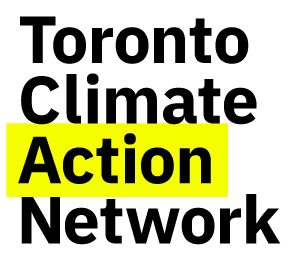Smart, relentless journalism can help get the climate emergency under control. What happens when it hits the wall?
About this event
Climate journalism is at a turning point, as the day-to-day impacts of the climate crisis deepen and people everywhere search for the next, best thing they can do to make a difference.
The science says we have until 2030 to cut global greenhouse gas emissions by 45%. We know where the emissions are coming from. The solutions are practical, affordable, and ready for prime time. So the race is on.
But it isn’t that simple. Different groups across society—governments, industries, citizens—can influence different parts of the problem. The solutions aren’t always as easy as they seem. So getting the right information to people who need it most is one of the key ingredients of the climate response everyone is looking for.
That means climate journalism plays an essential role in getting the climate emergency under control. But it often hits a wall—when a news outlet can’t follow a story to its conclusion, or when focused knowledge in areas like climate finance, municipal climate action, or a decarbonized power grid doesn’t reach the audiences that can put it to use.
Join our expert panel of journalists and climate practitioners to learn how climate journalism can:
• Tell the stories that help drive faster, deeper carbon cuts;
• Spotlight the gaps that are slowing down the shift off carbon;
• Assemble the audiences that can use timely, targeted information to make a difference.
The Journalists
• Anna Hiatt, Executive Editor, Covering Climate Now, New York
• Megan Darby, Editor, Climate Home News, London, UK
• Alex Kirby, Co-Founder, Climate News Network, Brighton and Hove, UK
The Practitioners
• Greg Overmonds, Director, Marketing & Communications, Vancity Community Investment Bank, Toronto
• Binnu Jeyakumar, Director, Clean Energy, Pembina Institute, Calgary
• Steve Winkelman, Executive Director, Ottawa Climate Action Fund, Ottawa
Moderator: Mitchell Beer, Publisher, The Energy Mix, Ottawa
Meet the Panel
Anna Hiatt is executive editor at Covering Climate Now, a global journalism collaboration co-founded by Columbia Journalism Review and The Nation strengthening coverage of the climate story.
Megan Darby joined Climate Home News in 2014 and became editor in 2021. In her reporting career, Megan rocked the boat at UN shipping talks, told the inside story of the “lionesses” behind net zero, and explored what climate migration looks like in Bangladesh. If all goes to target, she says, she will reach retirement age in a net zero emissions society – but as a journalist, she doesn’t take that on trust.
Alex Kirby was founder and editor of Climate News Network. He began his career in journalism as a Reuters stringer in Ouagadougou, Burkina Faso, then worked for 26 years for BBC News as a desk editor, foreign correspondent, and London-based reporter and environment correspondent. In 2013, he and three colleagues launched the Climate News Network, a not-for-profit website which published a daily news story on the crises of climate and biodiversity before merging with The Energy Mix in September 2021.
Greg Overmonds is director of marketing & communications at Vancity Community Investment Bank (VCIB), the only values-based bank in Canada that focuses exclusively on helping make our communities more affordable and sustainable. Prior to joining VCIB, Greg led marketing at CoPower, scaling their clean energy investing platform, and at ecobee, as the marketing lead for their smart thermostat demand response program.
Binnu Jeyakumar brings a wealth of skills, expertise, and experience from the power industry, government, and non-profit sectors to her position as director of the clean energy program at the Pembina Institute. Her portfolio includes Canada's coal power phaseout, renewable energy integration, and grid modernization. She has expertise in fossil fuel and renewable generation technologies, community energy, and sustainability strategy development.
Steve Winkelman is executive director of the Ottawa Climate Action Fund. He has 30 years of experience in climate change, sustainable transportation, urban planning, clean energy, clean air, infrastructure resilience, and climate finance. He has supported government officials, researchers, development banks, private companies, and NGOs in more than 25 countries with policy and project development, finance, implementation, evaluation, and capacity building.
Session moderator Mitchell Beer is The Energy Mix’s founding publisher and managing editor. He traces his work in renewable energy and energy efficiency to 1977, in climate change to 1997. A proud moment was helping his then-11-year-old daughter build a model wind turbine out of wooden stir sticks, and improv comedy practices are often the best part of his week.

